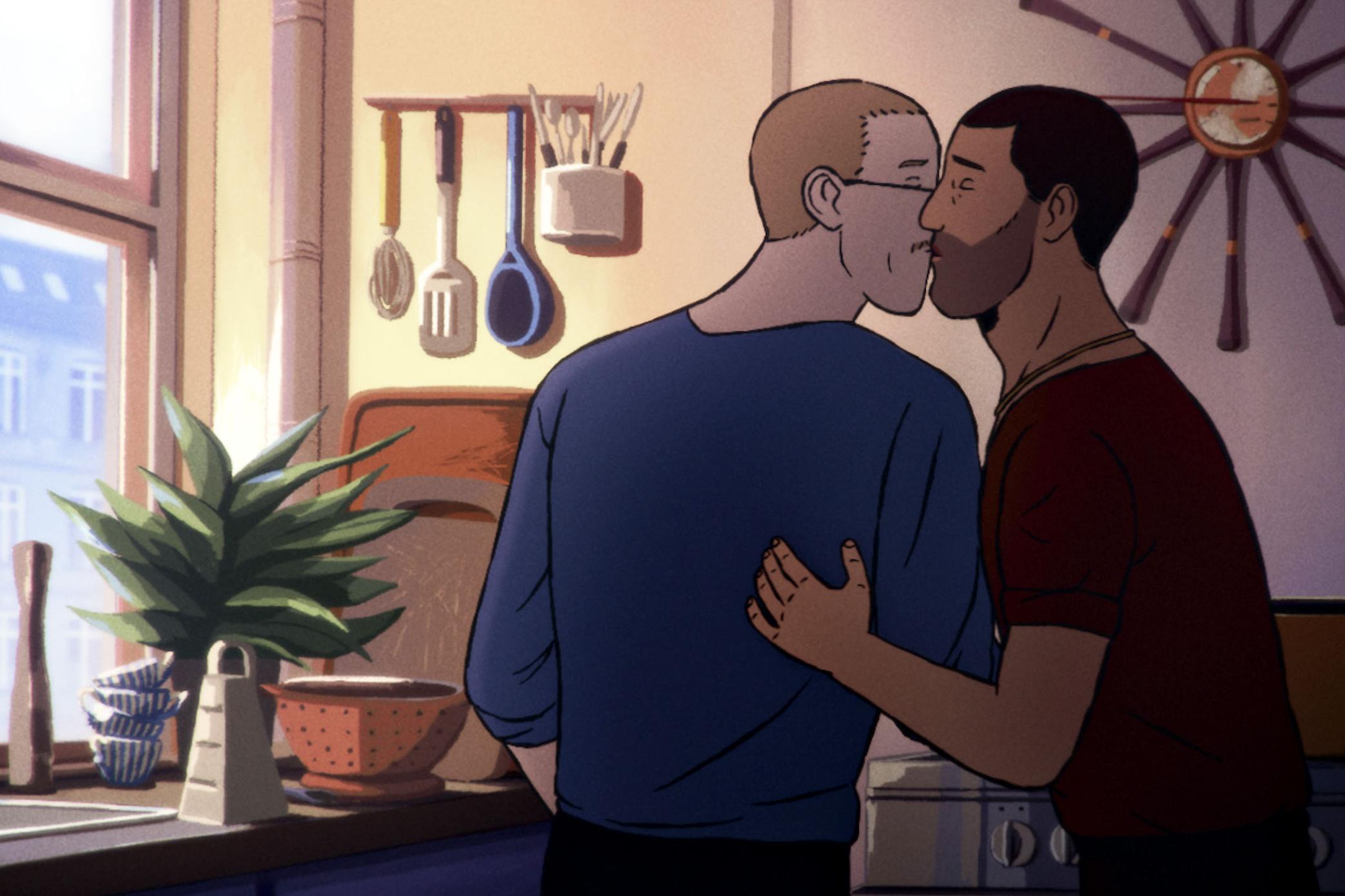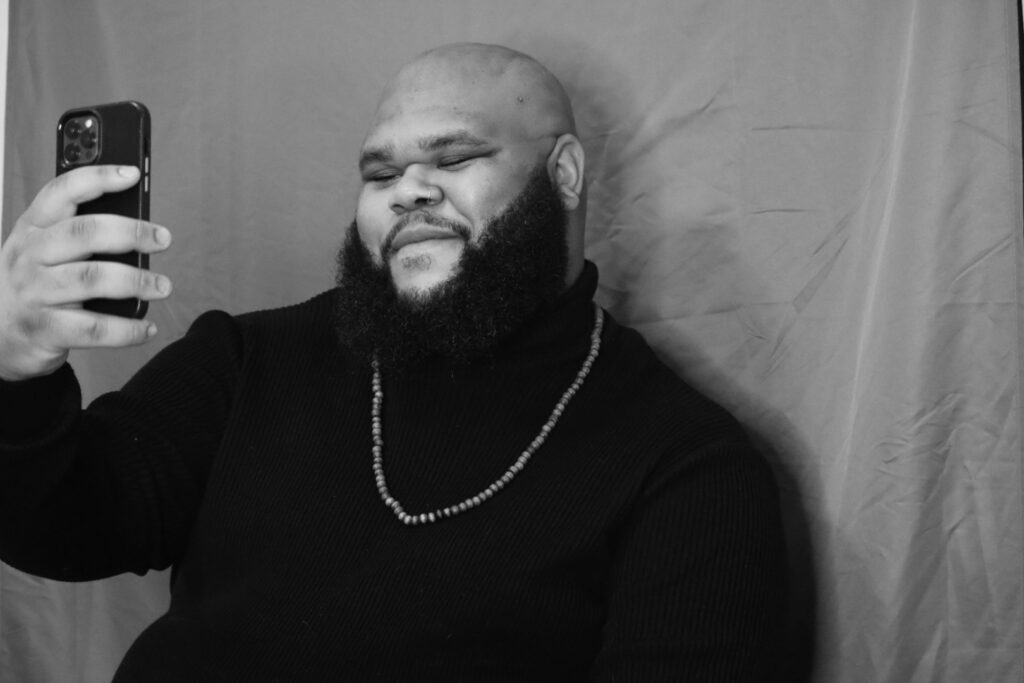
22 Mar Flee: Finding “Home” in Truth and Love
BY RASHEED AJAMU
**Content Warning: Spoilers Alert** Flee (Directed by Danish filmmaker, Jonas Poher Rasmussen and co-written by his friend and the film’s protagonist, Amin Nawabi) is an animated docudrama where the protagonist must reconcile with his past before he commits to love and marries his partner, Kasper. While this film heavily features symbolism of the effects of war, its subplot of queerness is just as important.
Amin is a refugee who escaped the aftermath of the Soviet-Afghan war. Amin was forced to reckon with the thought that he, like his older brothers, would have to be on the run from the Mujahideen police to avoid being sent to war one day. When the Mujahideen advanced into Kabul, Amin’s mother packed the family up, and they headed to Moscow, Russia, where most of his family’s wild journey to a new life takes place.

The animation uses color palettes and music to help bring Amin’s memories to life. The film uses bright colors and music like a-ha’s “Take On Me” to depict good memories and bleak colors with dramatic effects for bad memories. There are only a few scenes that forego the animation in order to depict historical context; in those moments, the film pieces together clips from old news broadcasts, which helps provide the context of the geographic and political conditions of each environment depicted.
Focusing largely on Amin’s migration story, the film sometimes saturates Amin’s queer identity. However, for Amin, his queer identity can be dangerous. He even says that there is no word for being “gay” in his culture–only shame. Keeping the importance of family in mind and all that they’ve been through, Amin purposely does not disclose his sexual orientation to his family to avoid any extra agony or feel disgrace. Still, we get some glimpses of his queerness during his coming-of-age.

The first of Amin’s memories we see is of him skipping through the streets of Kabul in his older sister’s dress, listening to a Walkman-like device. This scene serves in contrast to most of the film by depicting such a liberating moment. Amin also frequently addresses his brothers as “real men” to distinguish their straightness from his queerness. And after he is settled in Denmark, he even asks his social worker for medicine to cure his “sickness.” But the most freeing part of his story comes when he finally discloses his queerness to his family. In a scene where I thought things would take a dark turn, his older brother proved me wrong. What could have been a scolding was really Amin’s brother taking him to a gay club for the first time, where Amin was finally able to explore parts of himself that had taken a backseat due to harsh circumstances.
The ending was both symbolic and warming. In the closing scene, Amin and Kasper have finally purchased their first home together and will be married within the next few months. In the end, Amin finds “home” in his truth and in his love for his fiancé.
Flee breaks Oscars’ history by boasting nominations in 3 separate categories of the 94th Academy Awards —Best Animated Feature, Best International Feature and Best Documentary—airing on Sunday March 27, 2022 at 8PM ET on ABC. Flee is now streaming on Hulu

Rasheed Ajamu is a Black queer writer, content creator, and servant leader. They are a reporter at the Germantown Info Hub and curate content for the Phreedom Jawn Instagram page.

Sorry, the comment form is closed at this time.